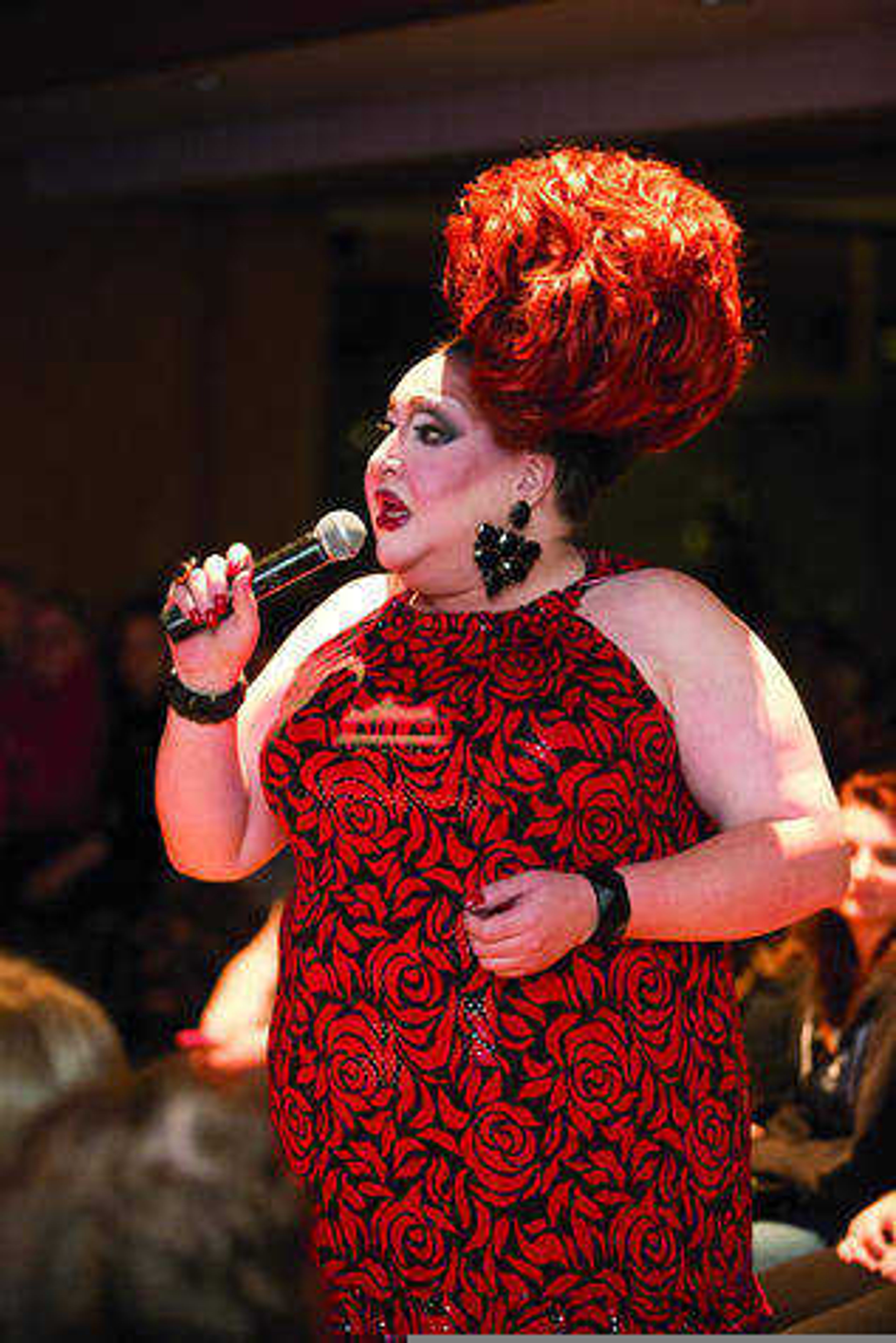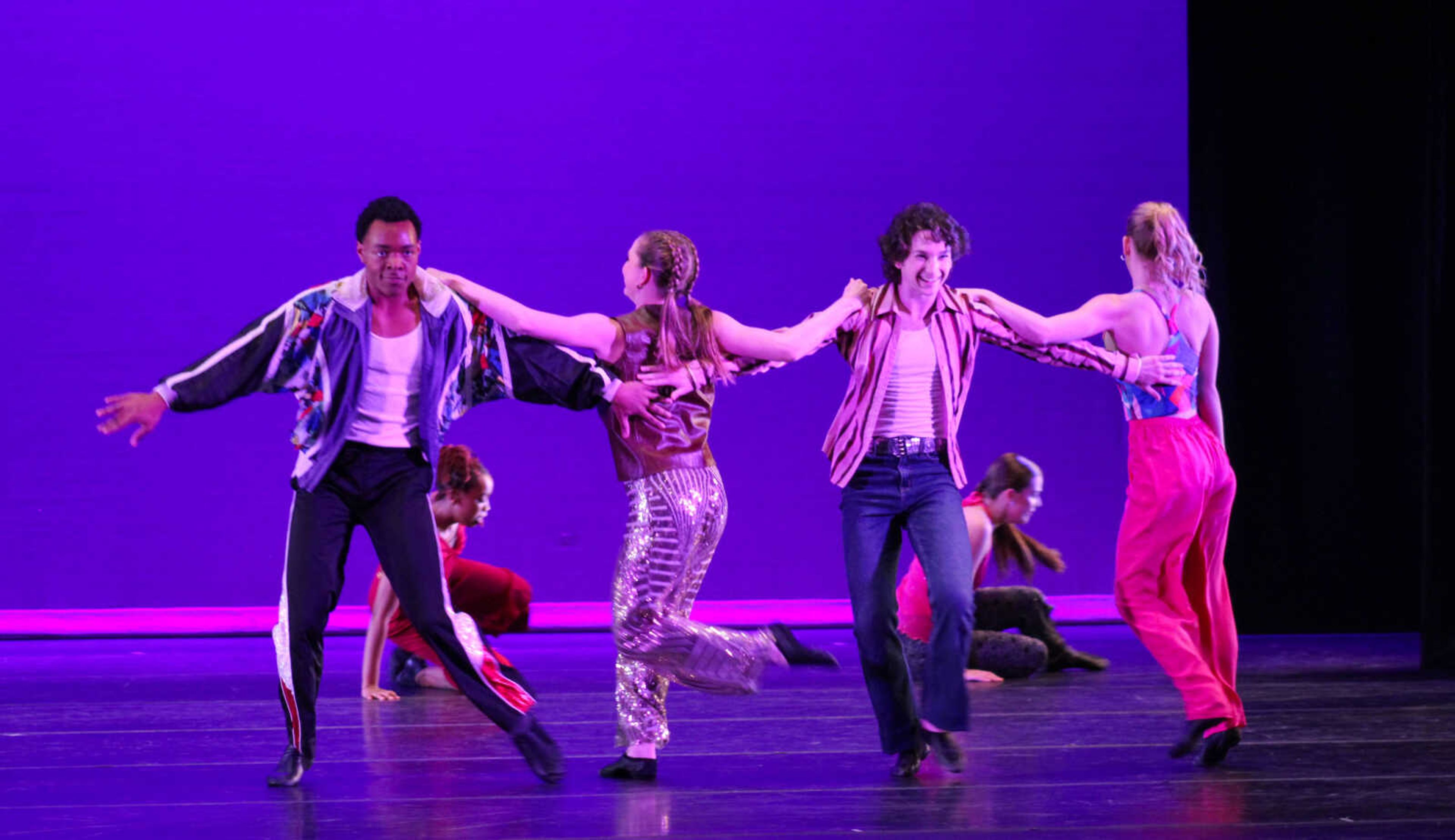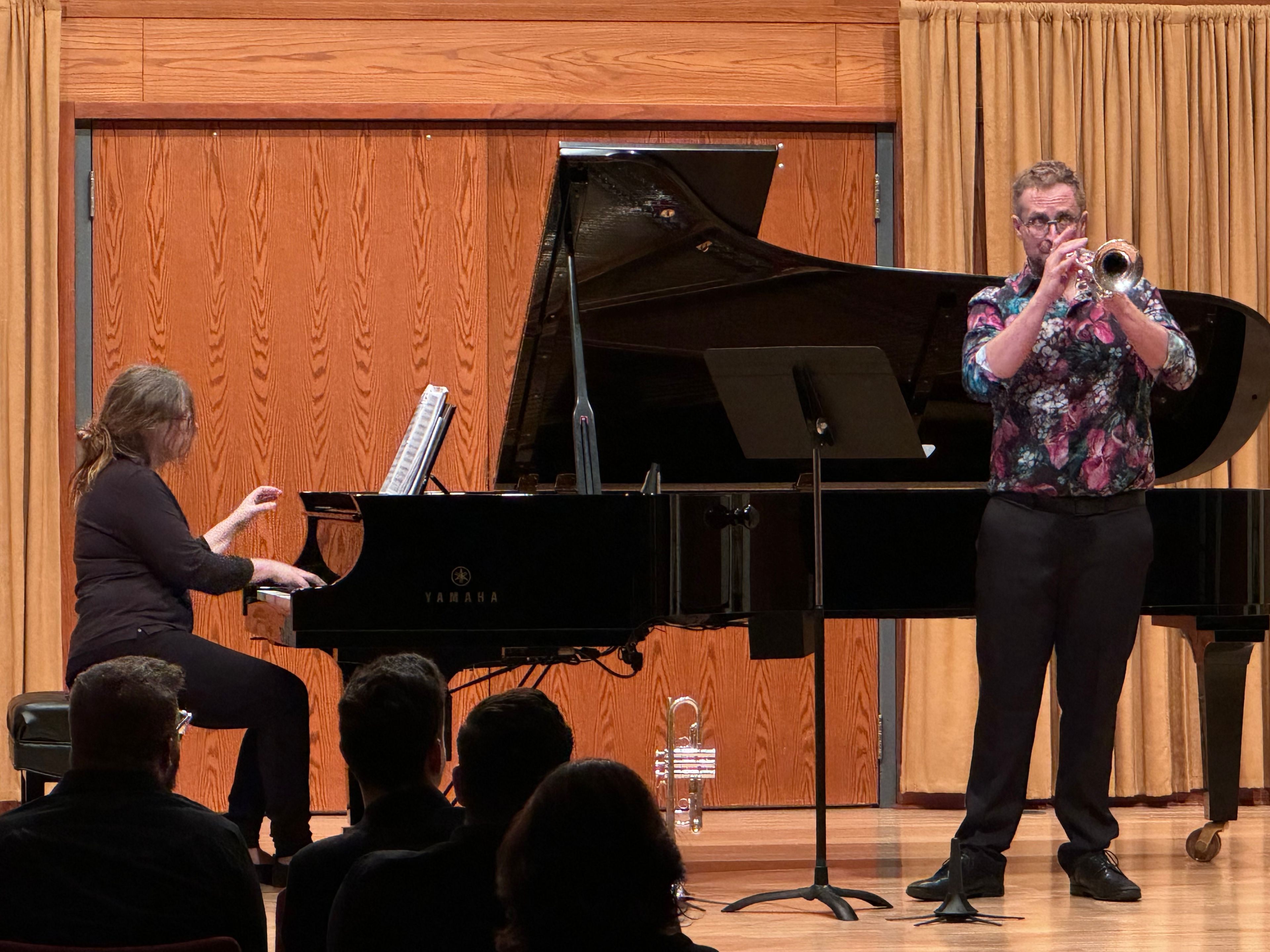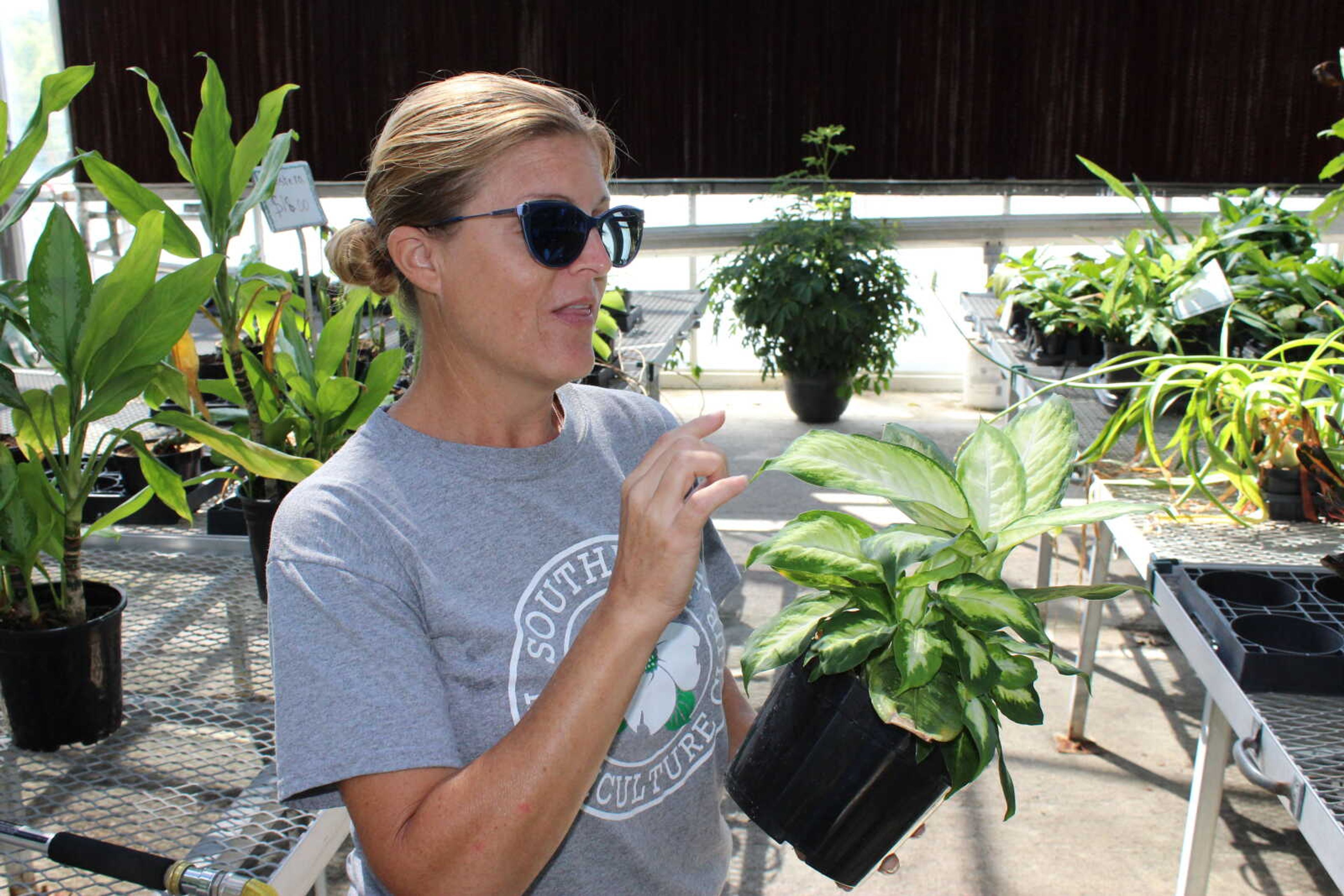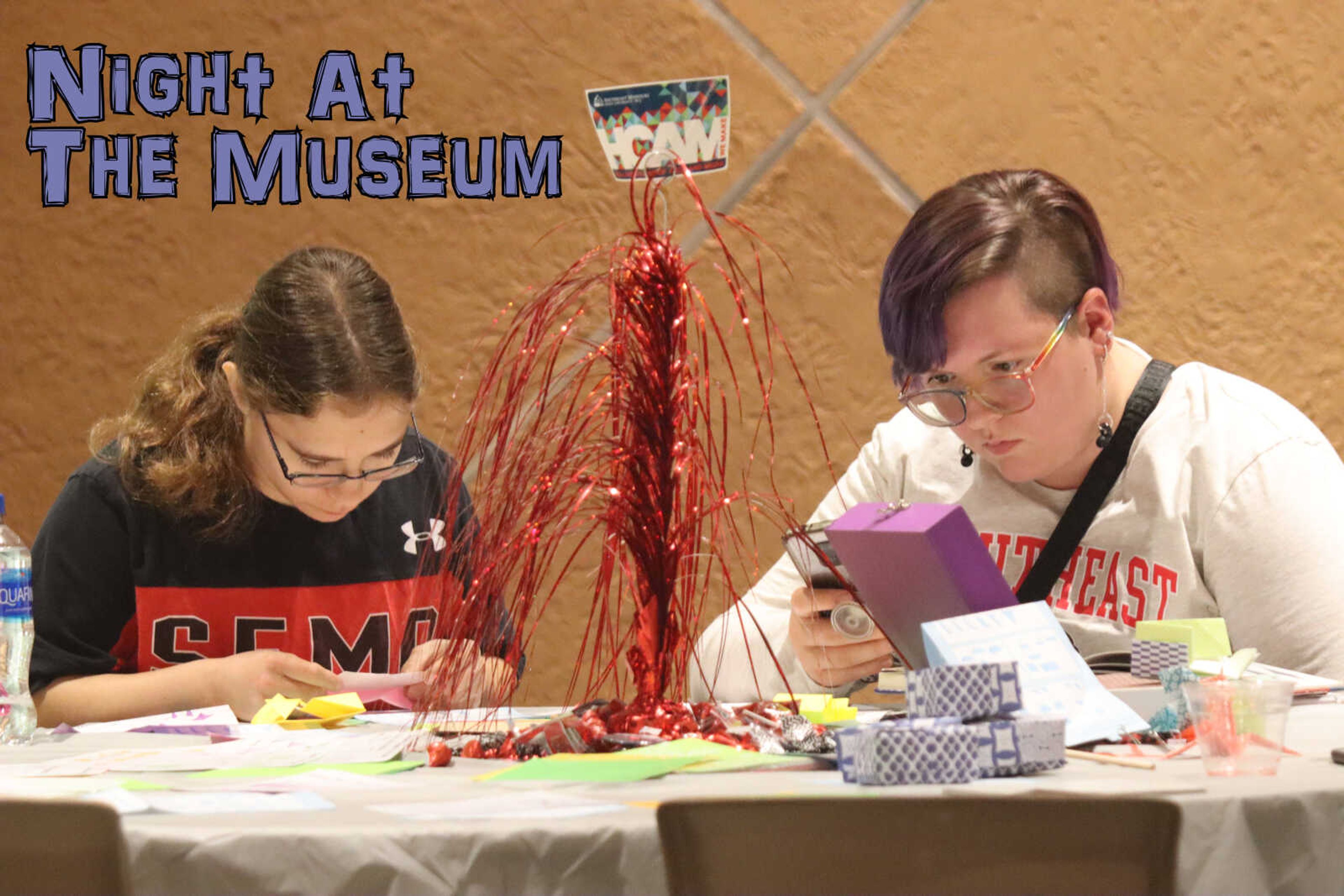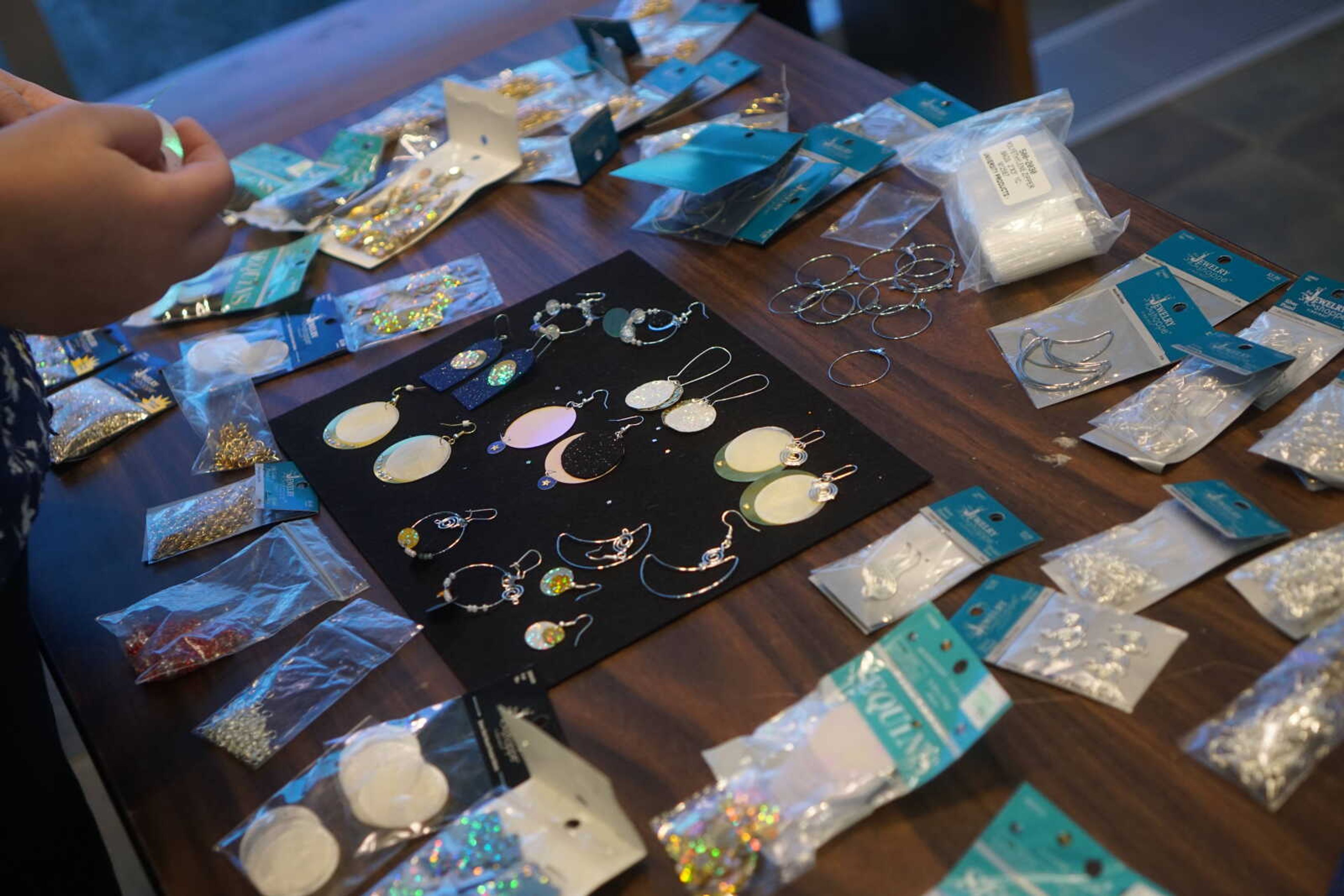GSA drag show well attended by students
The Gay Straight Alliance hosted their annual drag show Oct. 30, with around 400 people in attendance. "It's all about humanity and expressing yourself as an individual, representing your community, but also representing yourself within that whole compass of 'We're people, we want to be treated right, and this is just a form of entertainment,'" Khrystal Leight, the MC of the show, said...
The Gay Straight Alliance hosted their annual drag show Oct. 30, with around 400 people in attendance.
"It's all about humanity and expressing yourself as an individual, representing your community, but also representing yourself within that whole compass of 'We're people, we want to be treated right, and this is just a form of entertainment,'" Khrystal Leight, the MC of the show, said.
Leight, who has done female impersonation since 1993, started the first drag ball ever in the Midwest at Washington University in St. Louis, and brought the drag ball to Southeast Missouri State University in 1996.
"It makes me feel good because it's like you start something and you see it grow and you see the response," Leight said. "You see how acclimated our society is to this different counter-culture that we are living in not just in our own gay community, but also in society. And not to say that drag queens are going to be walking down the street and expect this and this and that, but we've made a lot of headway."
Leight opened the show with a lip-synced performance of "I Put a Spell on You" from "Hocus Pocus," complete with the Bette Midler hair from the movie. After the song, she started the show and asked how many people in the audience were attending their first drag show. Around half of the audience raised their hand.
A standout performance was Butter Scotch, who was born with a birth defect causing her to have only one arm, performing "Drunk in Love" complete with a one-handed cartwheel as well as "This is Halloween" from "The Nightmare Before Christmas."
Others included Lee Keller dedicating his performance of "I Have Nothing" to his mother in the audience, Trinity St. Moore's well-crafted costumes including a spider-web cape for her performance of "Disturbia" and Faim Lee Jewls performing "Love Don't Die" with a rainbow flag. Other performers included Riley James, Trippe St. Moore and Naomie Price.
The event also included GSA asking people in the audience to tweet to Southeast about adding a non-discriminatory policy for LGBT students using the hashtag #LGBTredhawks.
The event ended with a 30-minute Q-and-A with all the performers and Keller taking on the "Oprah" role for the panel.
When asked when they started dressing up and doing drag, the performers said they mostly started between the ages of 19 and 21, but most learned that they wanted to do drag when they were around 5 years old.
The discussion also touched on how their families react to it. The answers were mixed, with some being supportive while others don't really understand it.
The group also talked about tips on how to be a drag queen which focused on being true to yourself and to try to learn from, but not imitate, other queens or kings.
"I think my biggest thing in this business is never forget the community," Trinity St. Moore said. "I mean, that's the big reason why we're here. We are here to entertain you guys, but also always look inside that community and see those people who need help and help them. I mean, you are a role model once you step foot on that stage. You are a role model once that spotlight hits, so never, ever forget to help somebody in need. You never know if that person right there is going to be the first gay president or something that is going to be monumental that truly, truly helps the cause that we are fighting right now."
